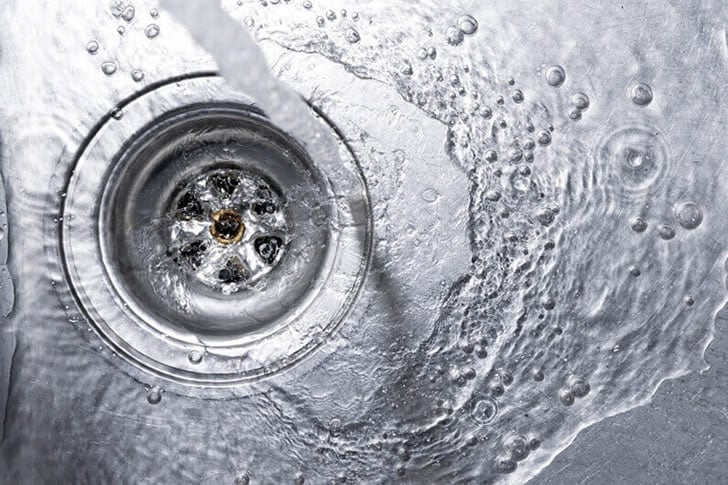Clogged drains are a common household nuisance. This guide explores simple home remedies and when to call a professional plumber for persistent issues.

Clogged drains are a common household problem that can disrupt your daily routine and potentially cause serious plumbing issues if left untreated. While some blockages can be resolved with simple home remedies, others may require professional intervention. This guide provides practical solutions for unclogging drains, tips to prevent future clogs, and advice on when to call a plumber.
1. Common Causes of Clogged Drains
Understanding the causes of clogged drains can help you address the issue more effectively. Some common culprits include:
- Hair: A primary cause of bathroom sink and shower clogs. Hair can accumulate and combine with soap residue, forming tough blockages.
- Grease and Oil: Cooking grease can solidify in pipes, leading to kitchen drain clogs.
- Food Particles: Even small food scraps can get stuck in drains, particularly if they’re not rinsed away thoroughly.
- Soap Scum: Soap residue can build up over time, narrowing the pipes and causing blockages.
- Foreign Objects: Items like cotton swabs, baby wipes, or even small toys can get lodged in drains.
- Tree Roots: For outdoor or underground pipes, tree roots can infiltrate and cause severe blockages.
2. Home Remedies for Clogged Drains
For minor clogs, there are several DIY methods you can try before calling a professional.
A. Boiling Water
- How It Works: Boiling water can dissolve grease, soap scum, or other minor buildup in the pipes.
- Steps:
B. Baking Soda and Vinegar
- How It Works: This combination creates a fizzy chemical reaction that can break down clogs.
- Steps:
C. Plunger
- How It Works: A plunger creates pressure that can dislodge clogs.
- Steps:
D. Salt and Baking Soda
- How It Works: This mixture works similarly to baking soda and vinegar but with a milder reaction.
- Steps:
E. Wire Hanger or Drain Snake
- How It Works: A wire hanger or drain snake physically removes clogs near the surface.
- Steps:
3. Professional Help for Stubborn Clogs
If home remedies don’t work or the clog recurs frequently, it may be time to call a professional plumber. Here’s what a professional can offer:
A. Hydro Jetting
- Uses high-pressure water to remove clogs and clean the interior of the pipes.
- Effective for grease, scale buildup, and stubborn blockages.
B. Auger or Professional Snake
- A plumber's auger or power snake can reach deeper into the pipes to remove tough clogs.
C. Camera Inspection
- A small camera is used to inspect the inside of pipes and identify the cause of the blockage.
- Useful for diagnosing severe clogs caused by tree roots, collapsed pipes, or foreign objects.
D. Pipe Replacement or Repair
- If the clog is due to structural damage, such as cracked or collapsed pipes, a professional can replace or repair the affected sections.
4. Preventing Future Clogs
Regular maintenance and mindful usage can help you avoid clogs in the future. Follow these tips to keep your drains clear:
A. Use Drain Covers
- Install mesh strainers or drain covers in sinks and showers to catch hair, food particles, and other debris.
B. Dispose of Grease Properly
- Avoid pouring grease or oil down the kitchen sink. Instead, collect it in a container and dispose of it in the trash.
C. Rinse Drains Regularly
- Run hot water down your drains weekly to prevent buildup.
D. Avoid Flushing Non-Flushable Items
- Do not flush items like baby wipes, paper towels, or feminine hygiene products down the toilet.
E. Use Enzymatic Cleaners
- Periodically use enzyme-based drain cleaners to break down organic materials naturally.
F. Trim Tree Roots
- If you have outdoor drains, regularly inspect for tree root intrusion and address the issue promptly.
5. Signs You Need Immediate Professional Help
Some clogs require urgent attention to prevent further damage. Call a plumber if you notice any of the following:
- Water backups in multiple drains or fixtures (e.g., sink and shower both clogged).
- Foul odors coming from the drains.
- Slow drainage even after attempting home remedies.
- Gurgling sounds from pipes when using appliances or fixtures.
- Repeated clogs in the same drain.
Conclusion
Clogged drains are an inevitable part of homeownership, but they don’t have to be a major headache. By using simple home remedies like baking soda and vinegar or a plunger, you can often resolve minor blockages on your own. For more persistent or serious clogs, professional help is the safest and most effective solution. Regular maintenance and preventive measures will ensure your drains stay clear and functional, saving you time and money in the long run.









